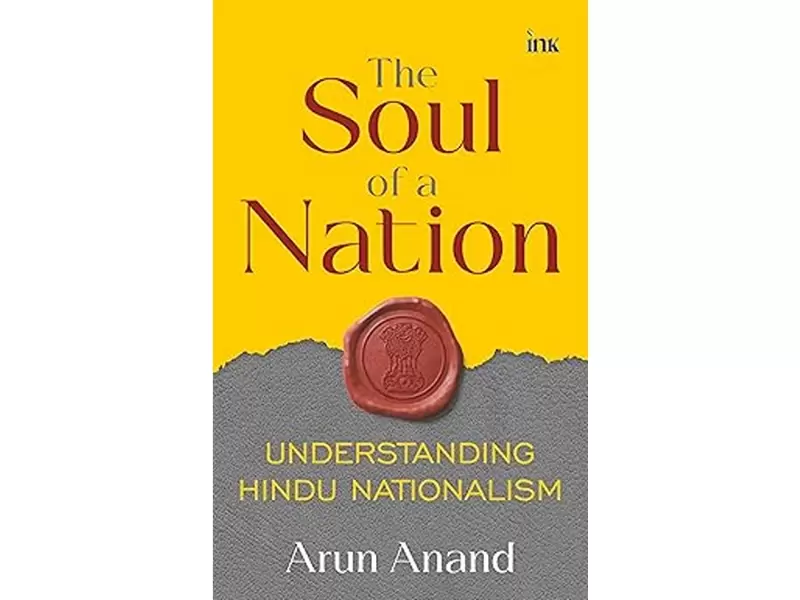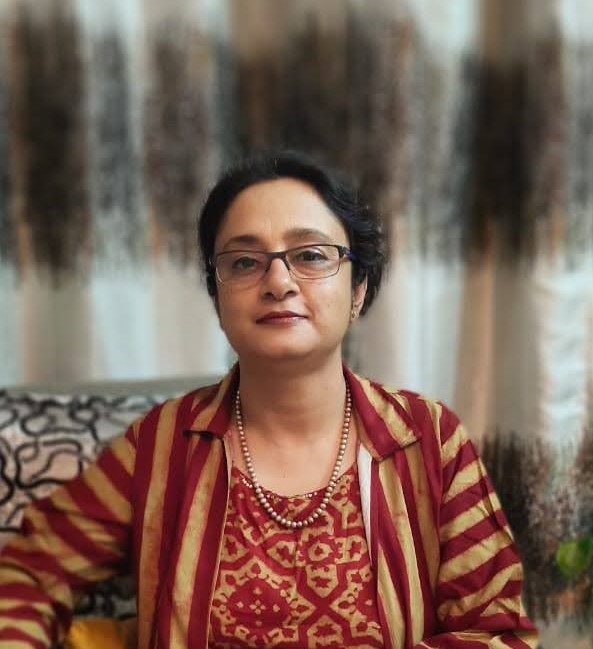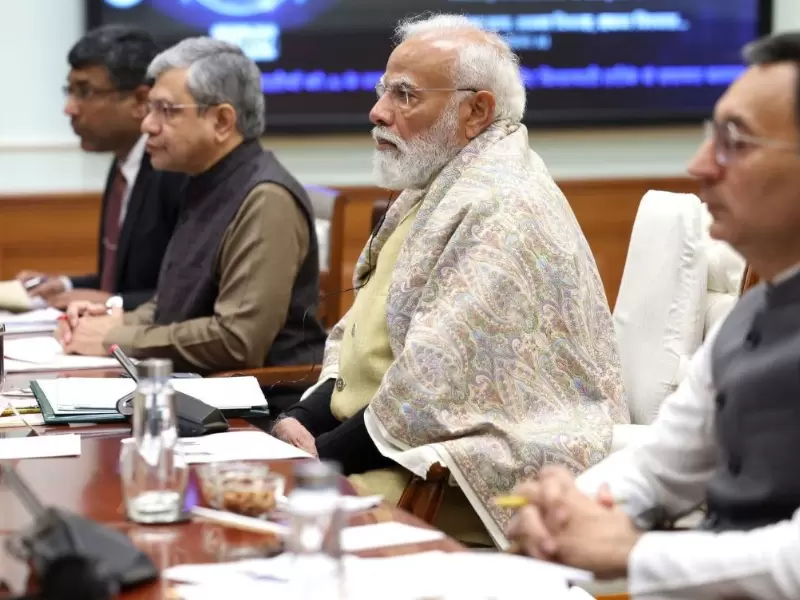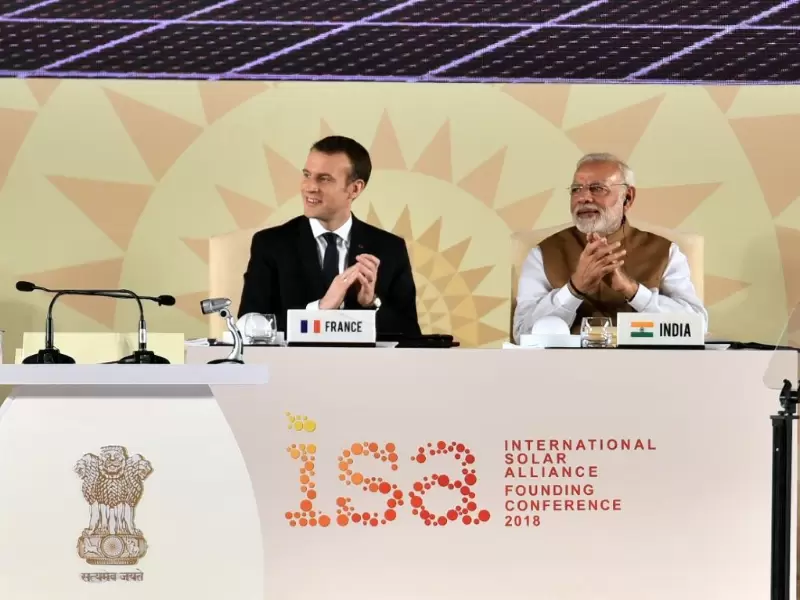Framing Hindutva and Hindu Identity: A Civilizational Response to the Rutgers Controversy
To understand what Hindutva truly represents, one must turn to the intellectual foundations of Hindu thought rather than its caricatures in political discourse.
 Book cover of 'The Soul of a Nation: Understanding Hindu Nationalism' by Arun Anand / Courtesy: Dr. Vinay Nalwa
Book cover of 'The Soul of a Nation: Understanding Hindu Nationalism' by Arun Anand / Courtesy: Dr. Vinay Nalwa
On Oct. 27, 2025, Rutgers University’s Center for Security, Race and Rights (CSRR) hosted a panel discussion titled “Hindutva in America: A Threat to Equality and Religious Pluralism” at the Alexander Library, New Brunswick.
Moderated by Professor Sahar Aziz, a Soros Equality Fellow and Director of CSRR, with Professor Audrey Truschke of Rutgers, Newark, as the expert speaker, the event explored how what it called “far-right Hindu nationalism” in India allegedly affects Muslim American communities.
While organizers maintained that their focus was on Hindutva as a political ideology distinct from religion, the language and framing of the lecture drew sharp criticism for conflating Hindu cultural identity with extremism.
In this climate of distortion and ideological bias, Arun Anand’s well-researched and soundly argued latest book, 'The Soul of a Nation: Understanding Hindu Nationalism,' assumes crucial relevance. The book is not a political defense but a civilizational exposition; it clarifies what Hindutva actually means in the continuum of Hindu thought and practice.
By reclaiming Hindutva from both its detractors and its superficial interpreters, Anand situates it within the deeper framework of dharma, culture, and identity that has sustained Hindu civilization for millennia.
Also Read: Rutgers University’s Academic Freedom Becoming Religious Persecution Against Hindutva
To understand what Hindutva truly represents, one must turn to the intellectual foundations of Hindu thought rather than its caricatures in political discourse. As Arun Anand writes, quoting V.D. Savarkar (Essentials of Hinduism) in 'The Soul of a Nation: Understanding Hindu Nationalism,' “Hindutva is not identical with what is vaguely indicated by the term Hinduism.'
'By an 'ism,' it is generally meant a theory or a code more or less based on spiritual or religious dogma or creed. Had not linguistic usage stood in our way, then 'Hinduness' would have certainly been a better word than 'Hinduism' as a near parallel to 'Hindutva.' Hindutva embraces all the departments of thought and activity of the whole being of our Hindu race.” (p. 14).
This distinction is central. Hindutva is not a theological dogma but a comprehensive expression of Hinduness, the civilizational continuity of a people who see divinity not in one creed or scripture but in the very fabric of life. It transcends the limitations of the Western term “religion,” which presupposes exclusivity and institutional belief.
Indeed, as Anand notes through Sri Aurobindo’s interpretation, the Hindu idea of dharma is not a creed but a dynamic law of being—“Dharma... is the rightful law of functioning for our life in all its parts. The tendency of man to seek after a just and perfect law of his living finds its truth and justification in dharma. Everything indeed has its dharma, its law of life imposed on it by its nature... Life is too complex to admit the arbitrary ideal simplicity that the moralizing theorist loves.” (p. 44).
This vision of dharma accepts diversity not as a concession, but as a cosmic principle. Aurobindo’s view, as presented by Anand, dismantles the very charge that Hindutva threatens pluralism; it shows that pluralism is built into the Hindu understanding of reality itself. The Western academy, bound by its own historical experience of faith as dogma, often fails to grasp this fluidity.
The roots of Hindutva are even older than Savarkar’s articulation. Anand reminds us that Chandranath Basu, writing in the late nineteenth century, had already outlined Hindutva as a philosophical and spiritual concept grounded in Advaita, the non-dual realization that the human and the divine are not separate.
Anand cites Ankur Barua’s 2017 research at the University of Cambridge to note: “The distinctiveness of Hindutva lies in its attempt to present diverse aspects of Hindu life and practice as conceptual unfoldings of Advaitic non-distinction between the finite and the eternal... The Hindus, unlike all the other peoples of the world, are able to apprehend themselves as not substantially different from the divine reality.”
This is the essence of Hindutva: the recognition of divinity within every being and every act. Far from being exclusionary, this worldview alone makes genuine universalism possible. To call such a philosophy “a threat to pluralism” is, therefore, to invert the truth.
Furthermore, the Hindu philosophy of dharma and religion defies Western binaries. As Anand elaborates on: “The Vedas are considered to be the most ancient and sacred scriptures of Hindu dharma. But the way Hindus deal with this heritage and legacy doesn't fit into the traditional concept of 'religion' and 'religious scriptures' that is being taught in the educational institutions that follow the Western framework.
The Hindu attitude to the Vedas is one of trust tempered by criticism: trust because the beliefs and forms that helped our fathers are likely to be of use to us also; criticism because however valuable the testimony of the past ages may be, it cannot deprive the present age of its right to inquire and sift the evidence. (p. 5)
This intellectual openness, trust combined with reason, is alien to creedal systems where questioning is heresy. The Hindu tradition, by contrast, sanctifies debate (shastrartha) and continuous reinterpretation as paths to truth.
Quoting from S. Radhakrishnan’s 'The Hindu View of Life,' Anand writes that the Hindu view of divinity is: “Hinduism does not distinguish the ideas of God as true and false... It accepts the obvious fact that mankind seeks its goal of God at various levels and in various directions and feels sympathy with every stage of the search... The bewildering polytheism of the masses and the uncompromising monotheism of the classes are, for the Hindu, expressions of one and the same force at different levels.” (p. 7)
While the controversy sparked a silent protest by Hindu students at Rutgers who asserted that such academic labeling fosters hostility toward Hindu groups on campus. Their peaceful stand, followed by a bipartisan letter from U.S. lawmakers cautioning against vilifying Hindu identity under the guise of political critique, marked a moment of awakening, a call for intellectual honesty and respect.
The Rutgers episode thus becomes more than a campus dispute; it is an opportunity for academia to move beyond inherited colonial frameworks and engage with Hindutva as a serious civilizational discourse rather than a political label.
In defending Hindutva, these students did not reject pluralism; they affirmed its oldest and deepest meaning, reminding the world that Hinduism, in its true essence, is not the “other” of pluralism but its very source.
The writer is an author and columnist.
(The views and opinions expressed in this article are those of the author and do not necessarily reflect the official policy or position of New India Abroad.)
ADVERTISEMENT
ADVERTISEMENT
E Paper
Video




 Dr. Vinay Nalwa
Dr. Vinay Nalwa












Comments
Start the conversation
Become a member of New India Abroad to start commenting.
Sign Up Now
Already have an account? Login